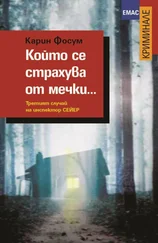She remembered the necklace again, the turquoise plastic beads, and the sound, the faint tinkle when her fingers played with the strings, the sound when the necklace broke, the beads rolling in every direction over the wooden floor. The shame she felt in relation to her mother, whom she had convinced to spend the money on junk, who never once said ‘I told you so’.
She crossed the road at the bus stop on Kirkelina and went to Irfan’s shop. Dolly was tied up outside, and she could see one of the Soi children in the aisle. She walked straight into Olaf. They exchanged a few words, then she picked up the things she needed from the shelves and put them in her basket. She asked Irfan if he had seen any vacancies for chefs recently, but he had not. She decided that she would tell him about her dream, when he came into her bedroom to get her brain. That she had seen him so clearly, with the bloody scalpel in his hand. But no sooner had she thought it than she was infuriated with herself. What would a man from his culture think about her confiding in him like that? ‘I dreamt about you last night.’ It was such an intimate thing to say, regardless of who it was. And to say it to the local shop owner was too much. She could have said it to Lars, though. Lars would have grinned happily and asked for the details. So she said nothing. When she had bought her things, she crossed the road again to her drive. Opened the mailbox, took out the newspaper, scanned the headlines. She saw there was something else lying on the bottom. Two letters. One was postmarked Berlin. The familiar blue stamp was the first thing she saw, ‘Not known at this address’. The card of a pony had been returned. On the other envelope, which did not have a stamp, it simply said ‘RIEGEL’. So Rikard Josef was not to be found. She could not understand it. Was Germany not a well-organised country, with perfectly functioning systems and structures? She trudged up towards the house and slammed the door shut, pulled off her coat. She tore the anonymous envelope open in a fury. She had not been chosen at random, how could she have ever believed that?
With the letter in her hand, she crossed the room and stood by the window. She wondered if Irfan would see her, if he looked out right now, see her black silhouette. The message was short and concise, as usual.
‘NO ONE WILL HEAR YOU.’
She sometimes got up in the middle of the night and pulled the curtains to one side, stared over at the Sois’ house, and at the church spire and pale clock face further up the road. After a few restless turns around the floor, she would creep back down under the duvet, and make herself as small as possible. No one had seen her, no one knew what she was thinking. Often when she lay awake like this, she thought of Walther Eriksson. He had probably gone back to Stockholm, and she had not given him anything. But then, she had nothing to give. And even worse, a postman in Berlin had once again stood in Landsberger Allee with a card of a pony in his hand and not known what to do with it. There was no longer a mailbox with the name Riegel on it. But it was Christmas soon! His card would come as always, she was sure of that, and she would mention to Gunnhild, almost in passing, that the Christmas cards were flooding in. Got one from Berlin today. Goodness, my boy has so much to do!
She lay awake and listened to the dark. Stretched herself out as far as she could, then curled up like a prawn, tossed and turned. The night was no longer silent, she could hear the seven billion people who lived on this earth. They were breathing like an enormous beast, cackling and screaming and wailing. She remembered that she had once heard about a man who had stayed in a completely soundproofed room for twenty-four hours. He explained that it was like an immense pressure in his head that kept building and building, until it was impossible to think. Like being cast in concrete. Imagine that silence, Ragna tried, it must be like death. She looked at the alarm clock — ten past four. Not much left of the night, but not yet morning. She got up and went to the bathroom. The window was covered by a plastic blue curtain, which she pulled aside as well. There was a thin strip of grass at the back of the house — or rather, it was more weeds and heather, frozen and leached of colour. The woodpile was also below the window, under the green tarpaulin. She had a pee, and then went back to bed and curled up.
She thought that she should ring Naper, her GP, to get some sleeping tablets. Finally, at six, she got up again. She put her feet down on the cold floor, put on some clothes and then went out and switched on the light in the kitchen.
Three days later, she sat on the bus on the way into town and planned her modest plea. She did not like to beg, but Naper had never actually refused her anything. He had never questioned her, never been authoritarian or arrogant. Quite the opposite, in fact, there was an air of melancholy about him that she identified with, that made her feel a connection. With his grave face and heavy jowls, and hands as big as bear paws, he reminded her more of an ageing lumberjack than a doctor. When she got there, she explained that she was not sleeping, and had not done so for some time. That the tiredness made her heavy and slow, and she could not shake it. She often had a headache when she got up and things flickered in front of her eyes. He wanted to know if anything had happened. If she was worried about something, or had experienced a loss. Or was she afraid of something. She looked uncomfortable, as one often does at the doctor’s, pale and apathetic, with her hands in her lap. She shook her head. Imagine bothering a busy doctor with trivialities like the letters in her mailbox, she would never do that.
‘I guess it’s part of getting older,’ she said, without looking at him.
She was sitting quite close to him, dressed in her green Europris shop coat with her handbag on her lap. She whispered her request. He looked at the screen, scanned through her medical history over the years — plenty there, she was well over forty, after all.
‘I’ll give you something gentle,’ he said, ‘that’s non-addictive. But be careful all the same. It’s usual to have sleeping problems for periods of time, but they generally pass naturally. But you’re not one who’s prone to complaining, Ragna, you’re very patient.’
He wrote out a prescription, and she heard the printer hum.
‘Do you have any good nights in between, when you sleep well?’ he asked.
She was struck by how friendly he was, despite all the complaints he must have heard over the years, all the expectations and demands, sickness and death, all the people he could not save.
She nodded. ‘I do have some good nights.’
‘Are you bothered by nightmares? Lots of people develop sleeping issues if they have bad dreams over a longer period of time. They dread falling asleep.’
‘I don’t dread it,’ she responded. ‘All I want to do is sleep. Sleep through the night. If that’s possible.’
She had the prescription in her hand and noticed his signature, which was illegible.
‘And your son?’ he asked, all of a sudden. ‘He’ll be coming home for Christmas, I suppose? Or are you going to Berlin?’
The question was so out of the blue that she started to stammer.
‘We’ve not decided yet.’
He said nothing for a while. It was a sore point for her, he had seen it before.
‘Come and see me again,’ he encouraged her.
She folded the prescription and put it in her handbag. Closed the door quietly behind her, and went out through the waiting room. There was something sad about the people sitting there, she thought. Perhaps none of them were sleeping either, maybe they all had aches and pains, maybe it was them she heard at night, complaining, breathing and wailing.
Читать дальше












